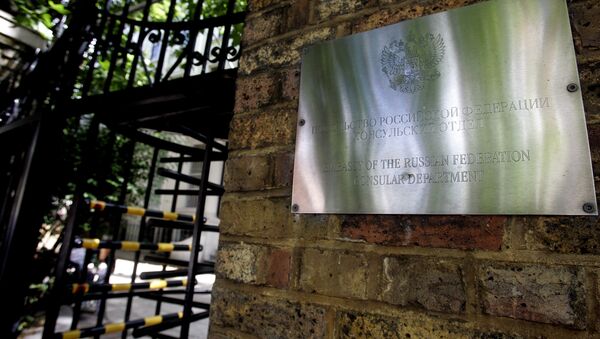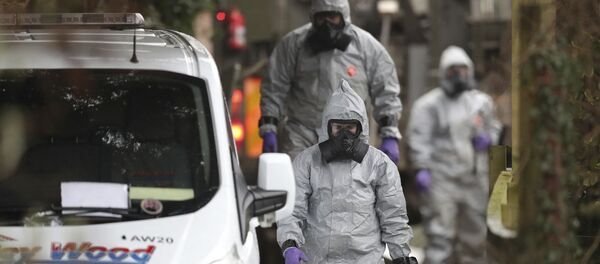The embassy has also expressed concern over reports on Yulia Skripal's transfer to a "safe place", calling it suppression of evidence and an obstruction of justice.
"Careful analysis of K. Davis (the policeman) letter and a number of statements by K. Blanchard (director of the hospital) from March 29 and April 6 and 10 shows that the hospital has never directly confirmed that Sergei and Yulia Skripal had any symptoms of nerve agent poisoning and that they were treated specifically for the poisoning," the Russian embassy wrote in a comment, published on the embassy's website.
They stressed that on Tuesday "K. Blanchard has only abstractly said what symptoms there were in general and how they were usually treated."
We are genuinely happy for Yulia Skripal and wish her a further recovery and rehabilitation. We pay tribute to the professionalism of NHS staff. At the same time, media reports that Yulia has left hospital for a “secure location” cause concern. Read: https://t.co/HLuV8SgXj1 pic.twitter.com/IqisXZlyGv
— Russian Embassy, UK (@RussianEmbassy) April 10, 2018
The Russian embassy has underlined that the Salisbury hospital, where Yulia and her father, former Russian GRU agent Sergei Skripal, were treated after the alleged attack, has failed to confirm that they had been treated for chemical poisoning or that they were treated precisely for these symptoms.
It was confirmed in April that Yulia and her father are no longer in critical condition and making progress in their recovery. They have been treated for over a month in hospital.
UK Prime Minister Theresa May claimed that it was "highly likely" that Russia was behind the poisoning attack, and ordered the expulsion of 23 Russian diplomats. This move triggered the coordinated expulsion of Russian diplomatic workers from dozens of countries in solidarity with London.



